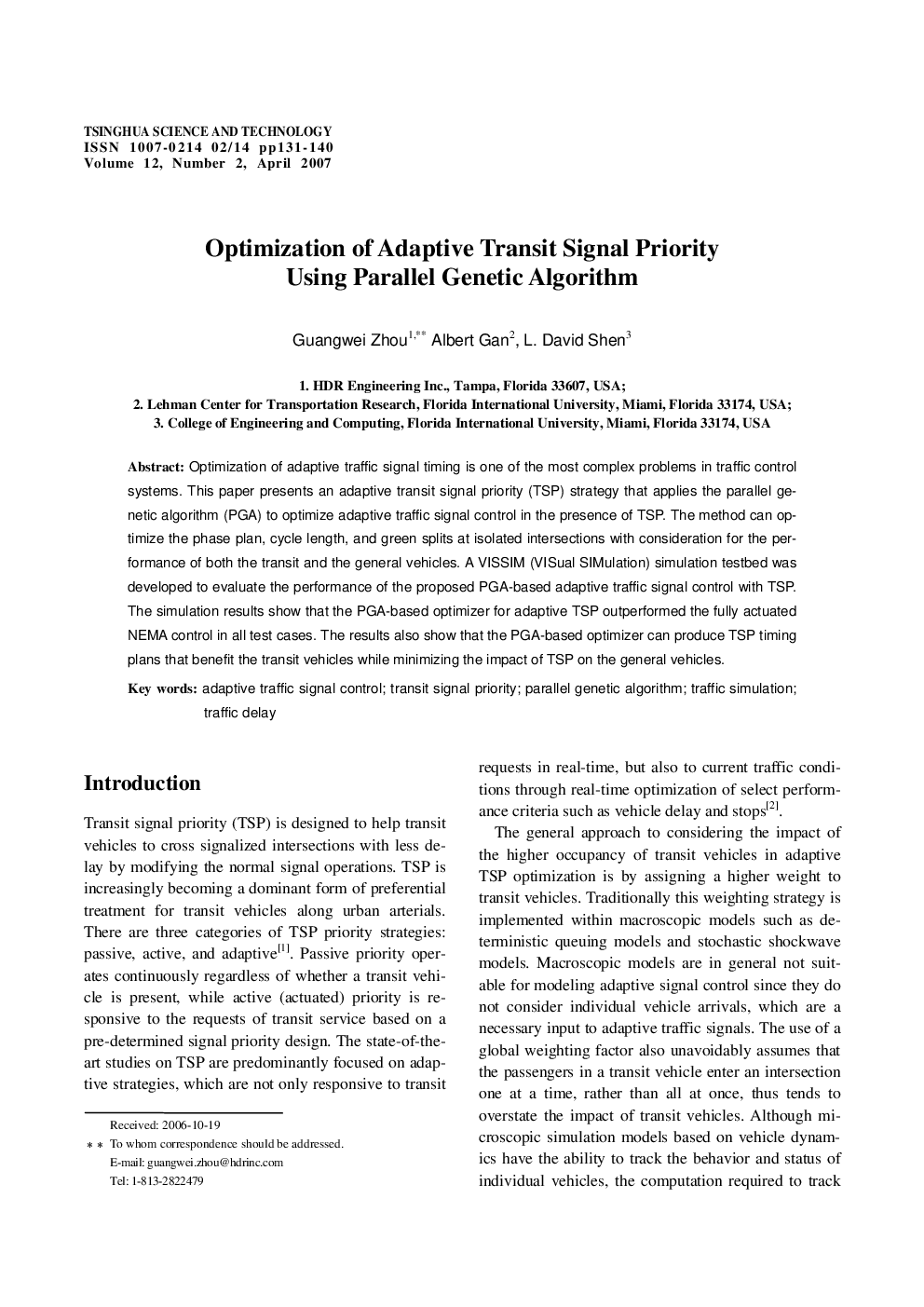| Article ID | Journal | Published Year | Pages | File Type |
|---|---|---|---|---|
| 865934 | Tsinghua Science & Technology | 2007 | 10 Pages |
Abstract
Optimization of adaptive traffic signal timing is one of the most complex problems in traffic control systems. This paper presents an adaptive transit signal priority (TSP) strategy that applies the parallel genetic algorithm (PGA) to optimize adaptive traffic signal control in the presence of TSP. The method can optimize the phase plan, cycle length, and green splits at isolated intersections with consideration for the performance of both the transit and the general vehicles. A VISSIM (VISual SIMulation) simulation testbed was developed to evaluate the performance of the proposed PGA-based adaptive traffic signal control with TSP. The simulation results show that the PGA-based optimizer for adaptive TSP outperformed the fully actuated NEMA control in all test cases. The results also show that the PGA-based optimizer can produce TSP timing plans that benefit the transit vehicles while minimizing the impact of TSP on the general vehicles.
Keywords
Related Topics
Physical Sciences and Engineering
Engineering
Engineering (General)
Authors
Guangwei Zhou, Albert Gan, L. David Shen,
